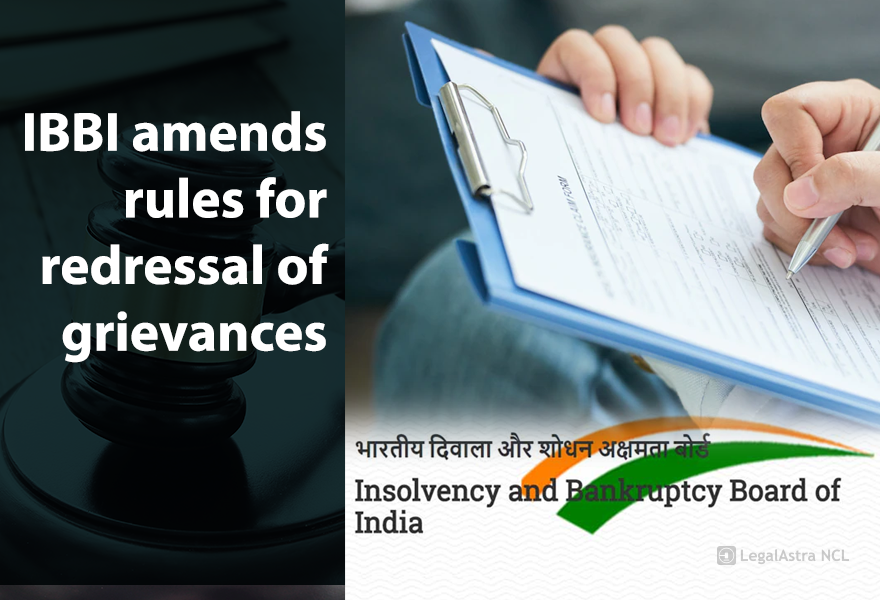The Insolvency and Bankruptcy Board of India (IBBI) has amended rules pertaining to redressal of grievances filed against insolvency professionals.
IBBI has amended the Insolvency and Bankruptcy Board of India (Grievance and Complaint Handling Procedure) Regulations, 2017 and the Insolvency and Bankruptcy Board of India (Inspection and Investigation) Regulations, 2017.


Track your NCLT / NCLAT cases or orders in your apple iOS / Google Android smartphones. Available for free trial period of 15 days.
The mechanism of complaint or grievance redressal and subsequent enforcement action has been amended to have expeditious redressal and also to avoid placing undue burden on the service providers.
To curtail delays and ensure expeditious and result oriented enforcement mechanism, the amended rules provide for revisions in various timelines related to enforcement process for addressing the issue of delay in the present mechanism.
The new rules will also provide effective participation of income payment agreements or IPAs in regulating the insolvency professionals (IPs) through examination of grievances received against them.
The amended rules require intimation to the Committee of Creditors (CoC) or Adjudicating Authority (AA) about the outcome of the Disciplinary Committee (DC) order.
IBBI is a key institution in implementing the Insolvency and Bankruptcy Code, which came into force in 2016.
The IBC code offers a market-directed and time-bound mechanism for resolution of insolvency cases, facilitating ease of doing business.
The Insolvency and Bankruptcy Board of India (Grievance and Complaint Handling Procedure) Regulations, 2017 provide mechanism for redressal of complaints filed against insolvency professionals, insolvency professional agencies and information utilities.
The Insolvency and Bankruptcy Board of India (Inspection and Investigation) Regulations, 2017 provide mechanism for carrying out inspections and investigations on insolvency professional agencies, insolvency professionals and information utilities and passing orders by the disciplinary committee.
